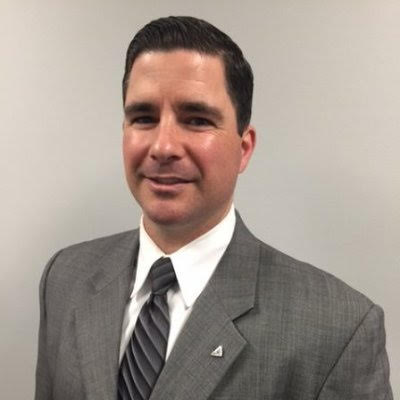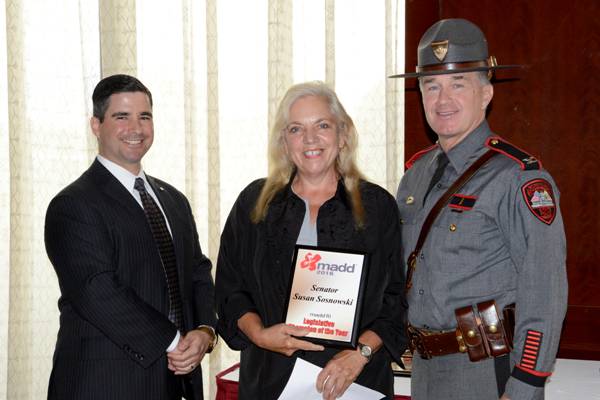
Eric Creamer was drawn to Northeastern’s Journalism program by its co-op program and focus on experiential learning. He would make use of his skills in writing to take on positions as a reporter at both The Westerly Sun and the Southern Rhode Island Newspapers. After graduating in 2003, he would continue working as a reporter for several years, though it was a career path he would ultimately move away from. In recent years, Eric has focused on his passions in public relations and advocacy, working in leadership positions in groups like the Boy Scouts of America Narragansett Council, and Mothers Against Drunk Driving (MADD). He continues this work today, as he recently started working as Director of Public Policy and Media Relations at the Alzheimer’s Association.
We were lucky enough to ask Eric a few questions to learn more about his career, his time at Northeastern, advice he has for other students, and more. Read what he had to say below!
What were some of the biggest lessons you took away from your time at Northeastern?
Taking advantage of the job opportunities from co-ops by staying with that employer after the co-op is finished was really key. What would you suggest to students today to get the most out of their time at Northeastern? Utilize co-ops to the fullest by doing three of them and focus your time on developing career skills as you won’t get that opportunity at other schools.
You recently started as the Director of Public Policy and Media Relations at the at the Alzheimer’s Association, could you tell us a little about the position?
I am the State and Federal lobbyist for the company in Rhode Island as well as the contact for public relations and external communications, which is a vital position in bringing more exposure to the organization and crafting the messages.
What was it that interested you about the position?
Working with lawmakers both on the state and federal side to try to combat Alzheimer’s disease is an incredible opportunity because there is currently no cure for it. I will get to work in hand with volunteers, advocates and policymakers to try to increase research, funding, and support for those affected.

You served as Executive Director at Mother’s Against Drunk Driving, and a Director at with the Boy Scouts of America, what were these experiences like?
It was amazing working on behalf of victims of a crime and helping them even in some small way. I was the head of the organization locally and helping to grow awareness and steer the message was extremely impactful and meaningful. The Boy Scouts was a very different non-profit that is built around volunteer-run programming and development, and the resources available were different.
What were some of the biggest lessons you learned from the work?
People and staff management can’t always be taught. That was probably the biggest parts of both of those positions, and in many ways you have to learn how to relate to, work with and inspire different personalities. You have to adapt to different situations and be calm and consistent.
You were a reporter for several years, during and after your time at Northeastern, how do you think reporting has changed today?
I do believe the style of journalism I was engaged in is waning. Most people read quick headlines or get information off social media, which did not exist. Online newspapers were just starting to take hold when I was a reporter, and now those are having to evolve. I think journalism needs to stay objective, especially with the challenges we face today with technology where subjectivity is so rampant. Who knows what the actual truth is?
How did you make the transition away from reporting to focusing on advocacy, non-profits, and more community-oriented work?
I found that building relationships with the community relations skills I learned as a reporter truly helped bridge that transition, and it was a natural fit. Doing advocacy work takes being comfortable being in the public eye, which is a hallmark of the journalism profession.
What would your advice be to current Journalism students who may want to take a similar route?
Journalism students learn an array of skills and about different media with the goal of cultivating talents in a particular area. What students are taught and learn through working in the field help them professionally in so many ways. Getting involved in public policy and public relations requires knowing the needs and desires of the media, how to craft targeted messaging over many platforms, quick thinking and confidence in talking with people one-on-one from all walks of life from people off the street to a six-term senator.

